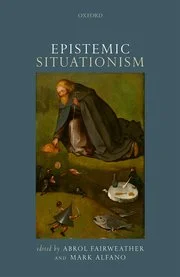RESEARCH
How do people become and remain virtuous?
I am developing a theoretical model of virtue acquisition and maintenance based on the phenomenon of friendship. I can't be a friend all on my own, and neither can you, but together we can both be friends. The idea is that virtues often come in interlocking pairs: For instance, you're trustworthy because I'm trusting toward you, and I'm trusting because you're trustworthy. This suggests that one person's character may be partially located in another person's character.
How are different values distributed among people?
What we say about the dead may say as much about us as it does about them. Along with my collaborators, I use data-mining techniques to extract patterns of evaluative judgments from obituaries published in local newspapers. This allows us to compare people's values based on their geography, their gender, their age, and other variables.
How should epistemic agents conduct themselves in flawed social networks?
Fake news and and other sorts of epistemic pollution are all around us. How should we respond? I approach this question at two levels. First, I ask which dispositions, rules, and policies individuals can adopt to handle the fact that their epistemic networks are seriously flawed. Second, I ask how best to reform the governance and structure of existing testimonial networks.





Mark Alfano. Cambridge University Press (2013).